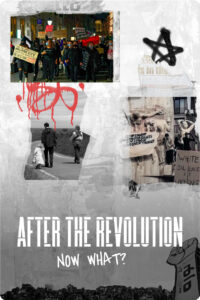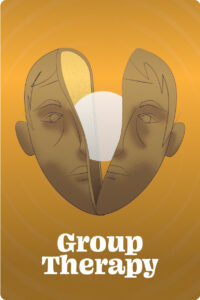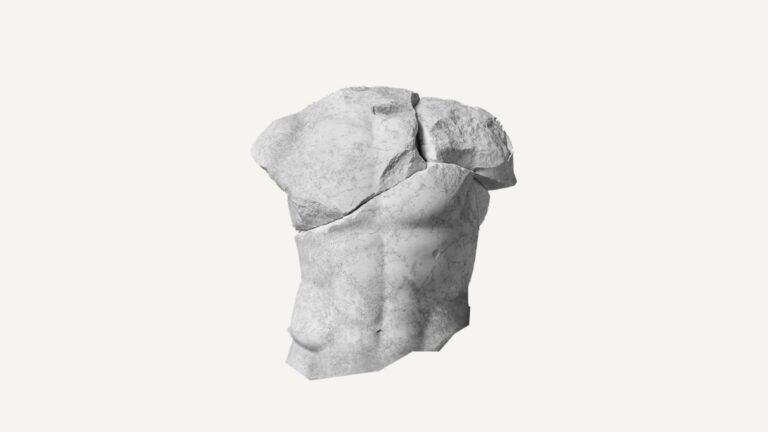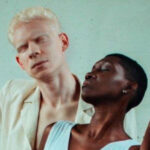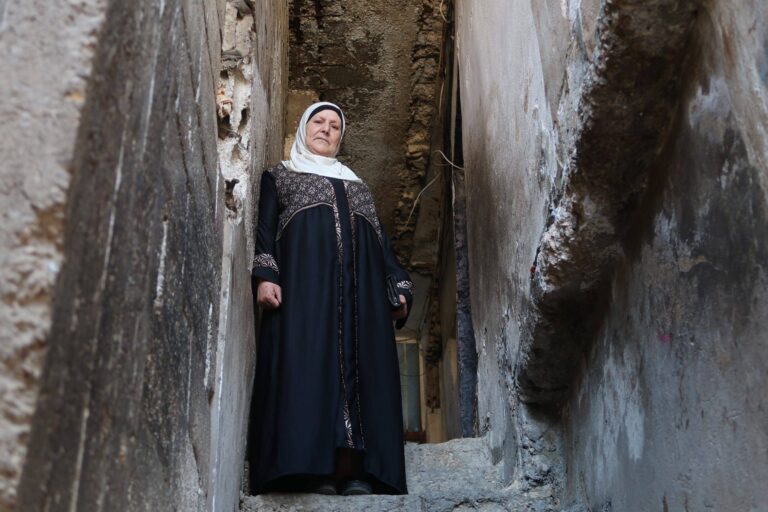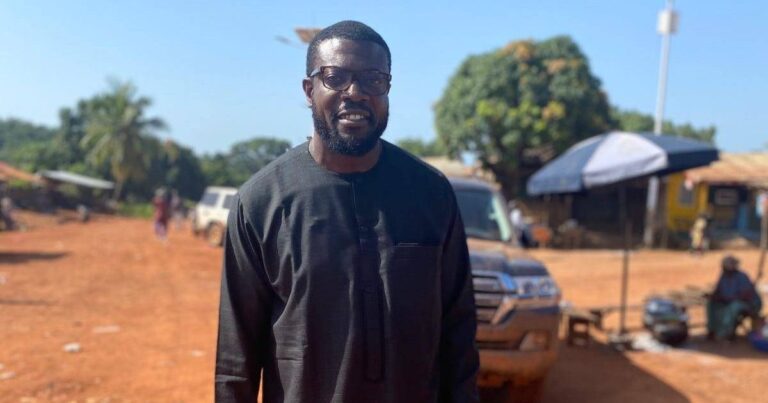I can’t remember at what point people started rejecting me because of my “mannerisms”. At five? Four years old? Maybe even before that? My older sister remembers my father disapproved of me playing with her silver pony. I don’t have any specific memory of that moment. Was I a toddler then…? I do remember the family bullying of my early years that led to a trauma I held in my flesh, in my body. “Stop talking like a girl,” “uncross your legs,” “one day a man is going to take advantage of you,” my father dreaded. At school, a friend of mine who acted tough questioned me one day: “Are you a faggot?”. I was 8 years old and asked my parents what it meant. A huge mistake as they forbade me to attend his birthday party on the next weekend, whilst my twin brother could go…
Their ultimate decision was to take me to a therapist so I could be “fixed”. Moreover, my father wouldn’t beat around the bush —and even less in front of my feminist mother. “Charles is smothered by his mother, coddled by his sister. He will end up… homosexual. What can you do?” The word was out! And so, they wanted to put me back on the right track, despite the fact I didn’t even have any sexual desire yet… My brother also took this “educational mission” upon himself. He who was growing up witnessing our father call me names, even such as a “bitch”, would mimic him. His words went from “You have a hole instead of a dick,” “you dirty faggot” around the time we were at middle school to “Stop complaining, now you’re normal” or “thanks to me, you’re not gay,” nowadays.
Although I’ve always been way more attracted to women than men (I’ve been living with the mother of my two daughters for twelve years), my feminine side —and yes, it is quite present— has generated some violence from the males in my family. Big deal! Having a penis without conforming to traditional gender norms. Because it is what it is: I have a soft voice, sometimes I burst out laughing with my hand in front of my mouth, I express my emotions and I couldn’t care less about soccer or cars. Besides my appearance being very common for a straight cisman (sweater, sneakers, shaved head), I have never been a guy, a “real one”.


In my opinion, being a man is about being free, free to behave however you want and love whoever you want
A few years ago, before my father —who had become more compassionate with me— passed, I dared to question him on the reasons behind the pathological bullying he put me through. “Your therapist did a great job,” he answered. But what job? Mainly teaching me how to love myself despite the relentlessness of those around me! I even managed to free myself from the soul crushing machine designed to produce masculine, tough men. And that, thanks to a major societal shift: the #MeToo wave, much more freeing than any workout session at the gym! Here was a movement which —as it denounced sexist violence— largely questioned the “toxic” masculinity at the root of my torment, a model leading as much “to the organized subservience of women as of the men themselves!” as Olivia Gazalé reminds us in her book Le Mythe de la virilité [“The Myth of Virility”] (Robert Laffont, 2019).
Indeed, the call for things to change from feminists (and LGBTQI+ folks) in the last few years has transformed the burden of “becoming a man” into a real political fight. Yet, even though this critical discourse has been democratized, I can’t help but notice that it’s still difficult to talk about with the men around me. Are we so few straight men who want to put an end to our forced virilization?
When I looked hard enough, I did end up finding some, ready to remove the taboo. And yes, they often displayed a difference, contrasting with the hegemonic masculinity of their peers (tall, muscular or bad boy types…). At 38 years old, Damien, who works in culture in Poitiers, still has to deal with tactless remarks “You look gay, are you sure you’re not a homosexual?”. “Those inappropriate comments can even come from women!” he deplores. Like this woman he recently met at a bar who invited him for drinks at her place. “Strange how effeminate you are…,” she kept on saying all night.
“I was so uncomfortable that nothing happened in the end,” Damien sighs. He has a hard time accepting “being categorized, essentialized as such”. He calls out “exchanges that are too black and white” at the core of relationships between men and women. “It’s as if some girls have internalized the injunctions that weigh on them so well, that they actually end up reproducing them the other way round against men like me,” he analyzes. “But why question my masculinity, my heterosexuality, only because I don’t take on a masculine persona?”
“Be a man,” “don’t cry,” “be strong” are so many gender expectations 23-year-old Noé has really freed himself of. He wears necklaces, rings, and nail polish “for his own enjoyment, not for any political reason”. Far from feeling self-conscious about it, he is straight and comfortable with his style. Even though he acknowledges that in his Parisian environment —he works at a wine bar in the 11th arrondissement— self-acceptance is quite easy. “Around me, I would say at least half the men my age are open to new masculinities. In any case, it’s a real topic among us! Of course, there are still so many others who stick to the absurd typically masculine stuff.”
When he was in Beaune in Burgundy for his studies, he did have to deal with some unpleasant comments. “A few rough middle-aged men,” that he was in charge of managing during his apprenticeship at Auchan. “I certainly stood out over there with my jewelry and tight pants,” he comments. “So even though it was tough, I had to assert myself.” But Noé assures that these types of men don’t upset him anymore, “They are so frustrated, so worried. Behind all these macho codes, they’re actually still trying to find themselves… In my opinion, being a man is about being free, free to behave however you want and love whoever you want.”
What about skirts? Neither Noé nor I wear any but I’ve been following people and associations online that advocate to abolish the gender binary from the men’s wardrobe. A wardrobe that is so much more limited for us… Exactly as the range of attitudes and emotions we are allowed to display in public.
Even though at almost 40, I’ve finally found some success, and not the least: nowadays none of my relatives dare to mention my so-called “gender identity disorder”
Exit softness, fear, sadness, empathy, sensitivity… In short, everything that more or less comes across as a manifestion of femininity and thus homosexuality. If, in my experience, I mainly suffered the consequences of not conforming in my household, a lot of the men who are traitors to their gender first have to deal with stigmatization at school.
This was the case for some young engineers, also “boylesque” dancers —at a cabaret part of the SCEP (“Communatarian Society of Parisian [male] Strippers”)— who spoke in an episode of the podcast “Les Couilles sur la Table”*. Thomas, an artist, explains: “I was conditioned to be like the other boys, to enjoy soccer, become an engineer… But I always wanted to dance.” Everything that hinted femininity prompted “mockery and insults at school,” he remembers. “I ended up doing what was expected of me.” Now, Thomas has found a way of liberating himself thanks to his activity of burlesque dancing. This feminist art was long reserved to women in search for a sense of freedom far from the limitations dictated by gender. “Mirroring this, we adapt it for men, also affected by gender norms. Or in any case, for those like me who don’t ‘fit in’: gay men, but not only…”
Boylesque dancer too, Aurel mentions his years in middle-school, where he became “a scapegoat”. “I did really want to be like the others. During my engineering studies, alcohol ruled and you had to finish your drink or else you were considered a sissy, or kiss as many girls as possible at parties. And I did it, just to get recognition…” Since then, Aurel has unlearned everything. “Surely, I identify as a cisgender man, but the more things progress, the more I wonder what it means. Actually, I really don’t care about my gender anymore! If I want to wear makeup, I do. If I want to express femininity, I do. Because people have no business telling me how I should behave as long as I’m not hurting anyone.”
I would have liked hearing those words from my peers a long time ago but the #MeToo movement was necessary for us to start freeing ourselves too. Step by step. In other countries, things are progressing faster. For example, in the U.S., more and more speaking groups (far away from the masculinist nebula!) are emerging like Evryman, Junto…, for those tired of playing the macho men. Among one another, they’re learning how to express vulnerability without shame.
Help us tell the world to you !
Frictions is launching its club : by supporting Frictions, you’ll be supporting a community of authors and journalists who tell the world through intimate stories!

Overseas as well, in the U.S., but also in Canada or Brazil, awareness-raising programs are gathering momentum. Manhood 2.0 encourages young men to reflect upon the impact of harmful gender norms whilst Global Boyhood is designed to help parents provide their boys with an education based on gender equality. In Asia, the Korean program FatherSchools focuses on the key role of fathers, by accompanying those who are strictest, often workaholics and emotionally detached from their families. “If we take in this sexist culture without questioning it and don’t change education, we will never achieve a change in the mentality of men!” Julio César Gonzáles Páges, director of the Ibero-American Masculinity Network, summed up at a 2020 forum organized by UNESCO.
As for myself, I’ve stopped trying to change my family’s way of thinking. Even though at almost 40, I’ve finally found some success, and not the least: nowadays none of my relatives dare to mention my so-called “gender identity disorder”. I now have to focus on my daughters’ education, away from these toxic stereotypes. All the while knowing that this educational challenge remains even greater for those who are fathers to… boys.
*Special episode « Eux-Les Boylesques », uploaded on the 19th of October 2018

